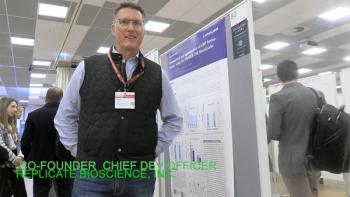
Andy Geall, co-founder and chief development officer at Replicate Bioscience continues the discussion on the development history of mRNA therapeutics.

New Medicines, Markets, and Manufacture: CRISPR for Sickle Cell Disease and β-thalassemia

Andy Geall, co-founder and chief development officer at Replicate Bioscience continues the discussion on the development history of mRNA therapeutics.

Novartis and Legend Biotech seek to advance certain CAR-T cell therapy candidates targeting Delta-like ligand protein 3.
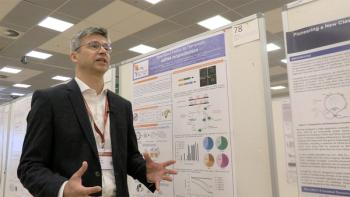
A discussion with Thomas Langenickel, MD, chief medical officer at Ethris, shines a light on how advances made with mRNA technology are also advancing the industry’s ability to focus on treatment of rare diseases, such as rare lung diseases.
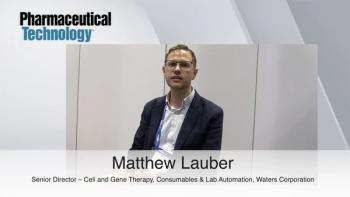
Matthew Lauber, senior director—Cell and Gene Therapy, Consumables & Lab Automation, at Waters Corporation highlights how current technologies are enabling oligonucleotide development.

Matthew Lauber, senior director—Cell and Gene Therapy, Consumables & Lab Automation, at Waters Corporation, considers that status of oligonucleotides on the market.

Innovative strategies and good partnerships are means by which developers can overcome the unique challenges in biologics formulation.

Matthew Lauber, senior director—Cell and Gene Therapy, Consumables & Lab Automation, at Waters Corporation discusses the analytical and downstream purification challenges of oligonucleotides.
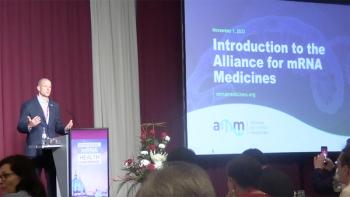
The Alliance for mRNA Medicines (AMM) was officially launched at the 11th International mRNA Health Conference in Berlin, Germany.

Spark Therapeutics and SpliceBio have formed a collaboration to develop a gene therapy that can treat an inherited retinal disease.

The California Institute for Regenerative Medicine has partnered with Forge Biologics, which will manufacture AAVs to help accelerate gene therapy programs in California.

Under an expanded agreement, Cellares will provide proof-of-concept manufacturing for a second CAR-T cell therapy from Bristol Myers Squibb.

Salipro Biotech and Icosagen have entered into a multi-target collaboration to discover and characterize monoclonal antibodies.

Roche will gain exclusive worldwide rights to develop, manufacture, and commercialize Ionis’ investigational RNA-based therapeutic candidates for Alzheimer's and Huntington's disease.

New routes to cancer treatment can be found with the help of tumor-infiltrating lymphocyte (TIL) therapies.

Eli Lilly and Company has received a complete response letter from FDA for its anti-dermatitis biologic therapeutic, lebrikizumab.

The program will allow sponsors of certain CBER and/or CDER-regulated products more frequent communication with FDA staff.

Biologics formulation comes with a unique set of challenges, which can be overcome through innovative strategies and good partnerships.
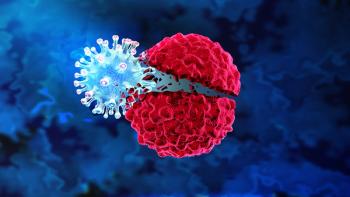
Tumour-infiltrating lymphocyte (TIL) therapies offer a new route to target cancer.

The EMA’s Committee for Medicinal Products for Human Use has given a positive opinion on Sandoz’ biosimilar trastuzumab for breast and gastric cancer.

Despite the successes that have already been achieved with emerging therapy development and manufacturing, companies are still facing numerous challenges.

Seagen will be responsible for conjugating these degraders to antibodies to make DACs and advancing these DAC drug candidates through preclinical and clinical development and commercialization.
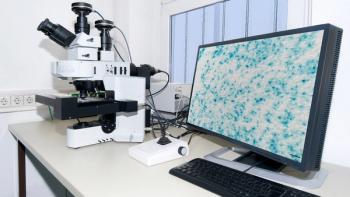
Image analysis algorithms coupled with microscopy techniques can be used to characterize aggregates of therapeutic proteins.

FDA has halted enrollment in clinical studies for Gilead Sciences’ magrolimab, a biologic treatment in development for acute myeloid leukemia.

Teva Pharmaceuticals and Alvotech will expand their partnership for the development and commercialization of biosimilar candidates.

Janssen has received a positive opinion from the EMA for two novel bispecific antibodies, TALVEY (talquetamab) and TECVAYLI (teclistamab), which the company is developing to treat blood cancer.